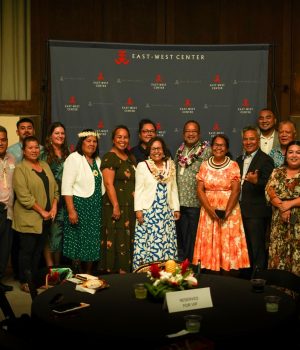I have recently attended the School of Internet Governance, while I was not so far from the Internet world as a collaborative economy specialist, I found myself lacking knowledge in the area of Internet Governance. The decentralised model that is now followed by modern organisations is but a reproduction of the innovative Internet model. I finished the school a week later with many questions due to the uncertainty of where this path is leading us.
Today, the Internet ecosystem works based on several pillars, an establishment for the Internet Assigned Numbers Authority [IANA] was formed in 1988, alongside the US National Telecommunications and Information Administration [NTIA], has been in charge of the Domain Name System [DNS].
Is the Internet finally free?
The Internet Corporation for Assigned Names and Numbers [ICANN] was established ten years later. ICANN is a not-for-profit public-benefit corporation that coordinates the system of unique names and numbers needed to keep the Internet secure, stable, and interoperable.
The Internet Society [ISOC], an international, non-profit organisation, was founded in 1992 to provide leadership in Internet-related standards, education, access, and policy, and it also founded the Internet Engineering Task Force [IETF].
As you are reading this article, we are witnessing a change in the world as the IANA is going through a transition to become independent from its historical contract with the United States government’s NTIA.
Specifically, the proposal of the Internet Corporation for Assigned Names and Numbers [ICANN], the Regional Internet Registries [RIRs], and the Internet Engineering Task Force [IETF], request the Internet Assigned Numbers Authority [IANA] to be managed by the ICANN overseen by its multistakeholder community.
This transition of the IANA function would be an optimal paradigm shift towards an Internet governance approach that fully embraces multistakeholder-ism whereas civil society and end users work side by side with governments in future decision-making related to DNS.
IS THE UTOPIAN MULTISTAKEHOLDERISM SHAPING UP TO TAKE OVER?
The multistakeholder model has been the key reason the Internet has prospered as a dynamic platform for innovation, economic growth and free expression.
The uncertainty of today’s Internet governance as we step into unfamiliar territory has been manifesting in several ways.
Starting with the challenge of Internet for all, with the hard work of the Internet Society to promote policies helping to sustain an open Internet that works as a universally accessible platform for innovation, creativity, and economic opportunity, it is still a challenge for the disabled: blind and visually impaired population are lagging behind.
Why is there such a disparity?
Because, the world as we know it is not a fair space, therefore, we fell into the trap of designing a replica online.
The Internet, within its public core, attempts to solve the issue of inequality, giving a voice and voting authority to smaller powers along governments. Internet decisions are based on a multistakeholder rough consensus.
However, within the current framework, we still find glitches indicating how far we still are from the utopian future, facing the many issues of human rights, cyber crimes, cyber terrorism, child online protection, protection of critical infrastructure, and taxation.
And with the complexity of the current situation, innovation is beyond waiting to solve the governance issue; the world today is moving towards developing blockchain technologies and the Internet of Things.
How do we go from here?
The evolution of Internet governance mechanisms has to showcase an improvement in representation, democracy, transparency, and accountability. The ecosystem cannot grow closed, we should all take part in the decision-making process, therefore, we need to recreate the values that are cherished within a collaborative society.
Values of openness, transparency, and inclusion; mixed with principles of self-expression, trust, and sharing, will allow a sustainable progress to the decentralised architecture ecosystem. We need to be able to leapfrog from recreating our offline problems online to design a better Internet Ecosystem.
A glimpse into the future showcases a permanent beta, but the direction can take any extreme at any moment. It is not too late to stop the fire from spreading, but would that mean closing the Internet in the face of criminals? But the Internet is for all.
But the Internet is for all.
Rather than making the knowledge age an invention that will bring humanity to an end with its unlimited resources, next time you are creating the next big thing, consider the value that you are adding to this world and ask yourself in which direction you are pulling: a collaborative open system or a closed global disconnect.
What do you think? Let me know in the comment section below!
For more business tips, check our entrepreneurship section and subscribe to our weekly newsletters.






